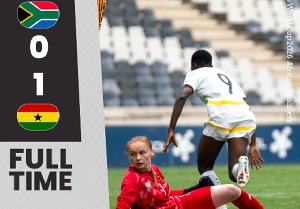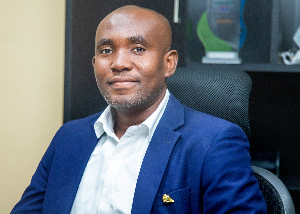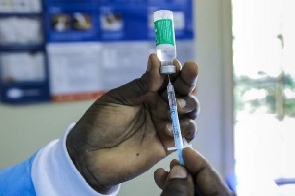An Australian resident of Perth and a Physiotherapist, Ms. Judith Killen has launched a sponsorship drive in Australia to establish a project for early detection and treatment of malignant tumour (retinoblastoma) in Ghana.
Retinoblastoma is an early childhood cancer that affects children and develops from the immature retina - the part of the eye responsible for detecting light and color. The project is being coordinated with Opthalmologists and Specialists at the Korle Bu Teaching Hospital in Accra. Ms Killen is assembling a team of Ghanaian and Australian health experts to work on the project that will ensure that Ghanaian children with retinoblastoma are given the best opportunity to survive and lead reasonably normal lives. The project will also improve health education to ensure early reporting and diagnosis of retinoblastoma at the Korle-Bu Teaching Hospital, provide epidemiological data to support early detection and treatment and institute a screening procedure for those with a high risk of hereditary retinoblastoma.
The project plan includes the recruitment and training of a research team, data collection at the hospitals as base line data and the commencement of detection and treatment. Health education for the general population through the media (radio, television and the print media) will also be initiated during the first year of implementation. The administering institution for the project will be Korle-Bu Teaching Hospital and direct treatment costs per patient will cover Cryotherapy, Radioactive plaques, Chemotherapy, Radiotherapy, Surgery and Counselling. Research will also be geared towards the magnitude of ocular presentations, visual outcomes and survival rates of this disease in Ghana. According to Dr. Eric Owusu-Sekyere of the Children’s Cancer Research Institute in Sydney, who is also a member of the Planning Committee, untreated retinoblastoma is almost uniformly fatal, but with early diagnosis and modern methods of treatment, the survival rate is over 90%. However, in developing countries such as Ghana where majority of patients with retinoblastoma present late with advanced form of the disease (extra ocular or metastasis), there is a very low survival rate of about 5%. This is primarily due to lack of knowledge about the disease and its outcome, cost of hospital care to patients (diagnosis and treatment) and lack of resources for care. To improve the survival rate in Ghana, there is the need to enhance early reporting through health education, early and cheaper ways of diagnosing the disease in those at risk and affected patients, and effective and cheaper forms of treatment.
It will be recalled that in a speech at the launch of this year’s World Sight Day, the Minister of Health, Dr. Kweku Afriyie indicated that about 75 percent of blindness in Ghana is caused by cataract, glaucoma, trachoma, onchocerciasis and childhood blindness. Ms. Killen’s initiative is in line with the Minister’s call for a national partnership that would include individuals, communities, Government, non-governmental organisations and health workers to reduce the burden of avoidable blindness.
For further information and sponsorship initiatives, please contact Ms. Judith Killen at drumjude@iinet.net.au.
General News of Friday, 17 October 2003
Source: Henry Antwi, Australia
Australian Launches Eye Treatment Project For Ghanaian Children
Entertainment











